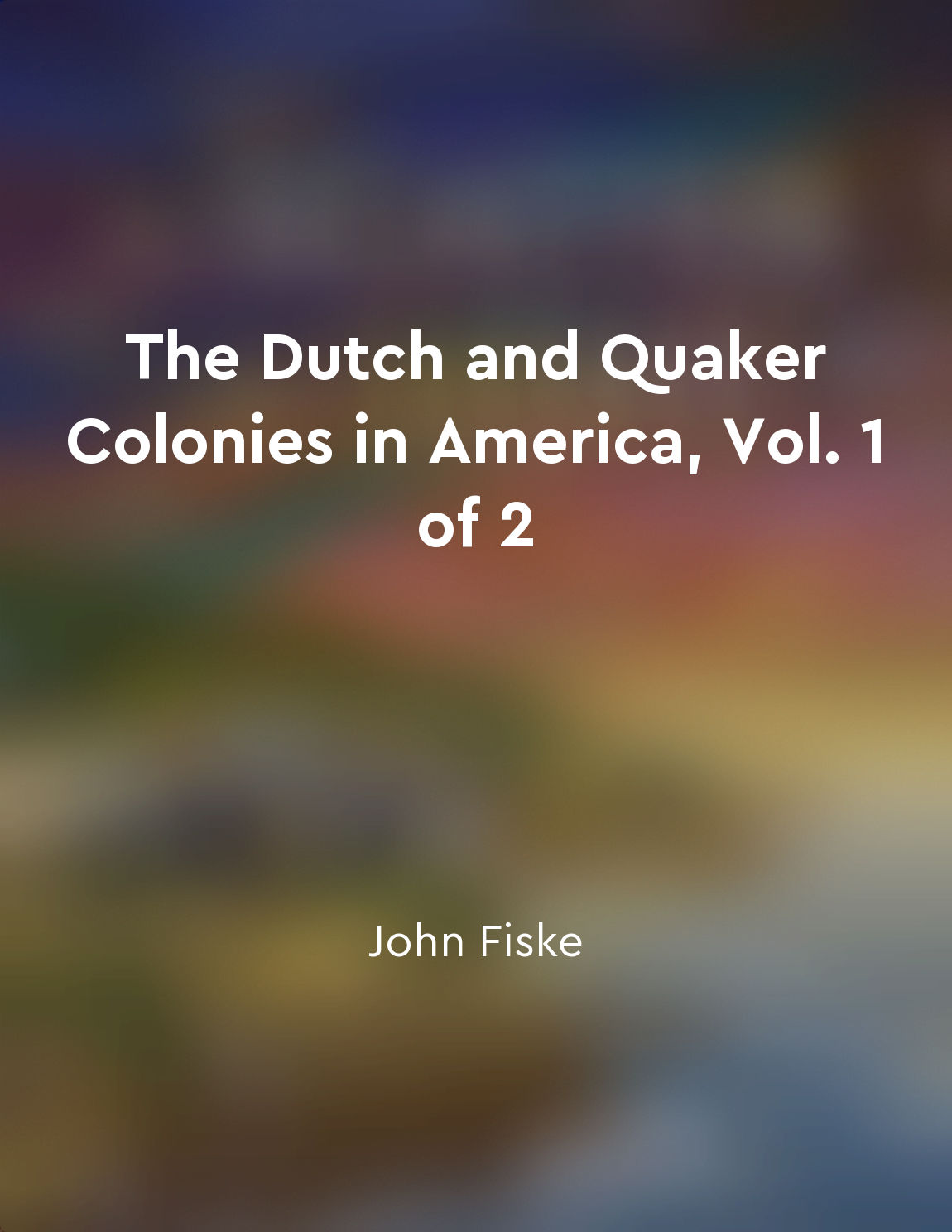Dutch established New Amsterdam in presentday New York from "summary" of The Dutch and Quaker Colonies in America, Vol. 1 of 2 by John Fiske
When the Dutch established their settlement in the New World, they chose a location that would eventually become New Amsterdam, present-day New York City. This decision was influenced by the strategic advantages of the area, particularly its proximity to the Hudson River, which provided access to the interior of the continent for trade and exploration. The Dutch West India Company, which was responsible for overseeing the colony, recognized the economic potential of this location and sought to establish a strong presence in the region. The establishment of New Amsterdam was a key part of the Dutch efforts to expand their influence in the New World. The settlement served as a trading post and military outpost, allowing the Dutch to engage in commerce with Native American tribes and other European powers. The Dutch West India Company played a central role in governing the colony, enacting laws and regulations to maintain order and promote economic growth. Despite facing challenges from rival European powers, such as the English and the French, the Dutch were able to maintain control of New Amsterdam for several decades. The colony grew in size and importance, attracting settlers from various backgrounds and contributing to the cultural diversity of the region. The Dutch influence was evident in the architecture, language, and customs of the colony, shaping its identity and character. Over time, however, the Dutch presence in the New World began to wane, as other European powers asserted their dominance in the region. In 1664, New Amsterdam was seized by the English and renamed New York in honor of the Duke of York. This marked the end of the Dutch colonial era in the region, but the legacy of their settlement lived on in the cultural, social, and economic development of New York City. The Dutch influence can still be seen today in the city's architecture, place names, and traditions, serving as a reminder of the important role that the Dutch played in shaping the history of the region.Similar Posts
Partition caused significant social and political upheaval
The partition of India in 1947 was a momentous event that had far-reaching consequences for the people of the region. The divis...

Dutch established New Amsterdam in presentday New York
When the Dutch established their settlement in the New World, they chose a location that would eventually become New Amsterdam,...

Dutch West India Company played a role in colonization efforts
The Dutch West India Company was a powerful entity that played a crucial role in the colonization efforts in America. Founded i...
